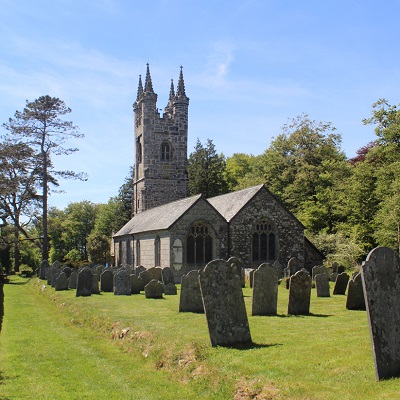Choosing pay-as-you-go mobile internet, or using an existing phone-line to install a router will be a relatively simple process. But most other routes to connectivity will be more complicated, and might involve structural work to your church building; which will in turn require a faculty before you can proceed.
Both mobile-network operators (MNOs) and wireless broadband providers can use church towers or spires to host telecoms equipment, which may serve the wider community as well as your church building.
A template licence agreement has been developed with NET CS for churches looking to host mobile-network infrastructure. If you've been approached by a company wanting to install mobile-network infrastructure on your church building please click here; or if you're interested in looking into the possibility yourself, please click here.
For general (as opposed to connectivity-specific) faculty process advice, click here. For specific legal considerations in wireless broadband and telecoms installations, read on.
Faculty approach
The process for obtaining a faculty for a wireless broadband or telecoms installation in your church building is not overly complicated; but there is a defined order to events, and several important assurances which must be present in your petition if the faculty is to be granted. In most cases, your supplier will project manage this process for you; but whoever is undertaking the responsibility, correct procedure must be followed. Here is a summary of the initial approach:
Consultation period
Once the process detailed above has been satisfactorily carried out, the DAC will issue a notification of advice to the PCC accompanied by a public notice, which must be displayed for a period of no less than 28 days, giving parishioners and others the opportunity to make representations. A copy of any drawings and specifications produced to date should be made available in the church. This is the consultation period.
Consultation is the penultimate stage before a faculty petition can be submitted to a Chancellor. If this part of the process is not properly observed, and parishioners or other local people are not given enough time to respond, this could result in delays to the installation or even to the refusal of a faculty.
The public notice provided by the DAC must be displayed (for no less than 28 days) in a prominent and publicly accessible place. We advise that you place one copy outside the main entrance to the church, and one more on any prominent public notice board in the vicinity. Some people might have concerns about major changes being made to their church so it's far better for them to feel they are informed, and that they have ample opportunity to make their thoughts known. (If people contact you expressing concerns, please direct them, in the first instance, to this web page.)
Where process is correctly followed, few objections are likely to seriously affect the likelihood of a faculty of this kind being granted. Many such petitions have been successful in the past. To give you an idea of what to expect, here are some of the most common legal objections, and the reasoning by which they have not prevented the granting of a faculty:
Petition checklist
The petition which you, or your supplier, submit to your Diocesan Chancellor will be composed of the following items:
- The completed faculty petition
- A copy of the original PCC resolution
- Completed Statements of Significance and Needs
- Historic England and amenity society correspondence
- DAC Notification of Advice and stamped drawings
- A copy of the Public Notice displayed during Consultation
- Planning correspondence and approvals
- Insurance company correspondence and approvals
- Proposed Head Licence, signed by surveyor (or valuer) and solicitor
- Design drawings
- ICNIRP certificate
- Propagation report
- Contacts
- Post-completion information
The faculty petition itself (number 1 on this list) can now be completed online, here.
Licence agreement
A template licence agreement with NET CS is in place for mobile-network installations.
For wireless broadband projects the following should be taken into account. PCCs are governed by charity law and ecclesiastical law. As such, PCC members are legally required to obtain the best terms available for their church – and to obtain, consider and act in accordance with professional legal and valuation advice. A qualified surveyor or valuer will be able to advise on the best contractual licence, taking into account current legislation and market conditions.
Where possible, this ought to allow for periodical review to consider market changes, such as inflation. Your Diocesan Registrar should be consulted twice: firstly at the start of the process to advise on any existing licence agreements of a similar kind which might help with the drafting of yours; secondly, prior to signing the agreement drawn up by your surveyor/valuer.
Here are some things to consider when consulting for a licence agreement to be drawn up:
